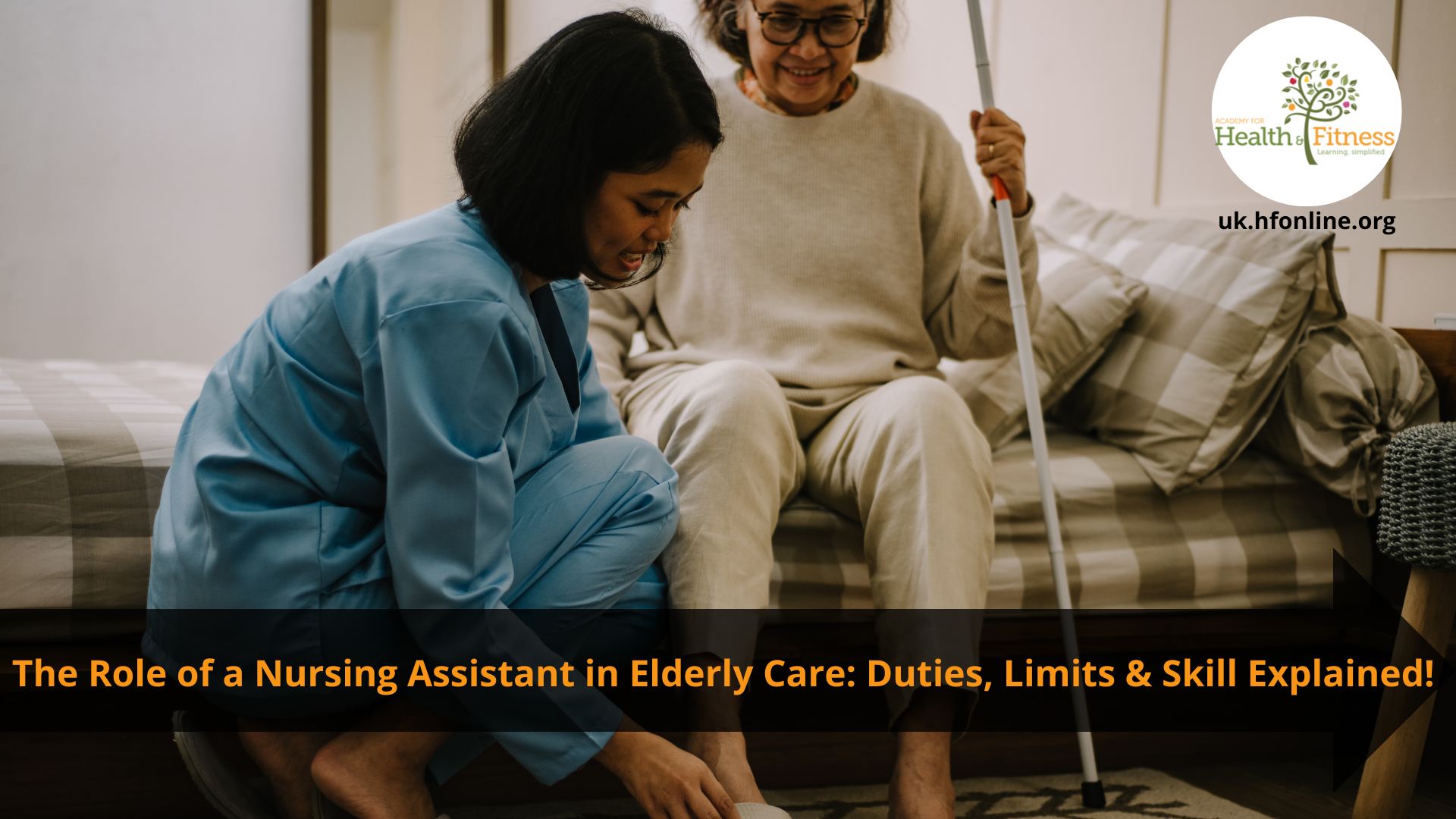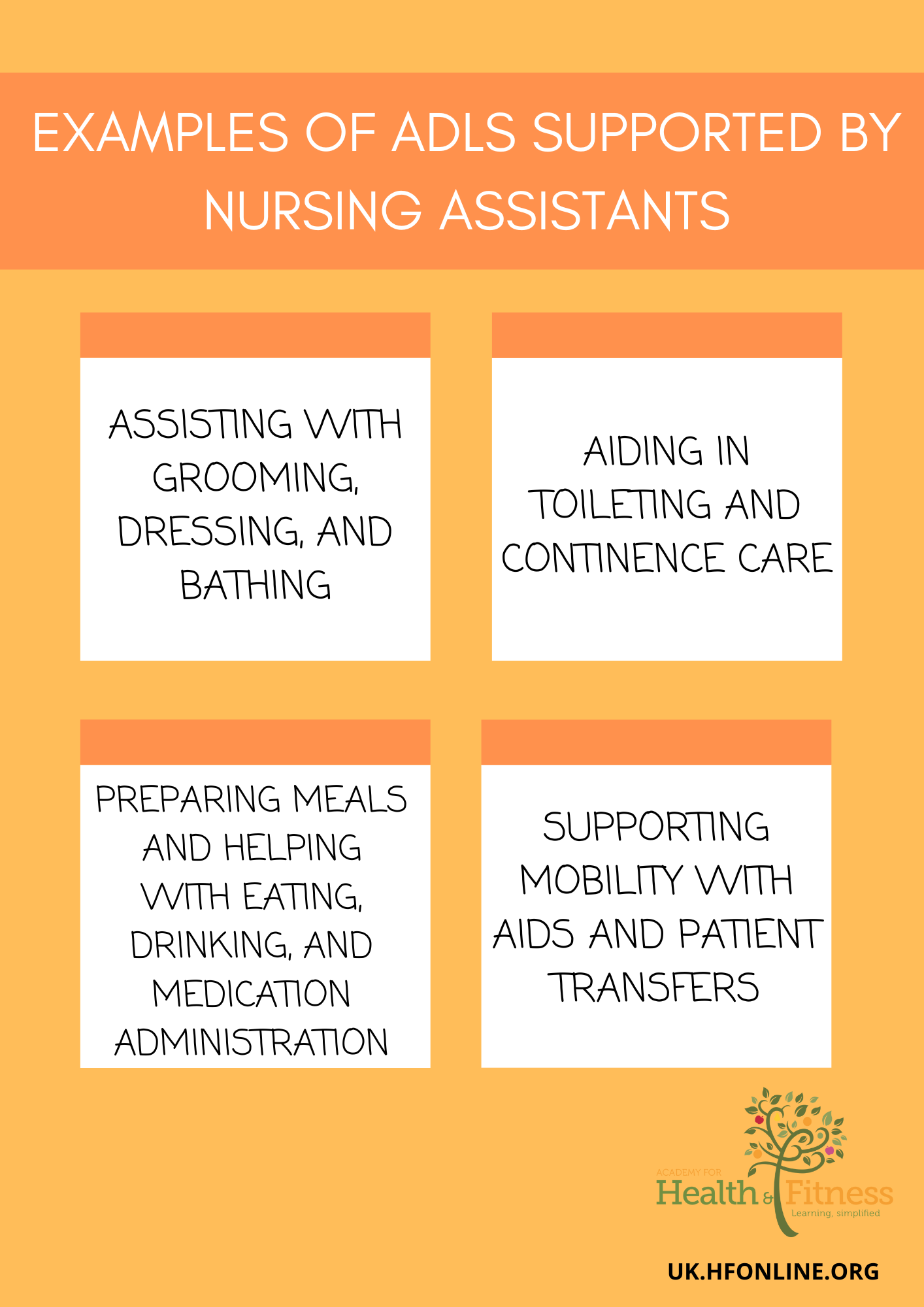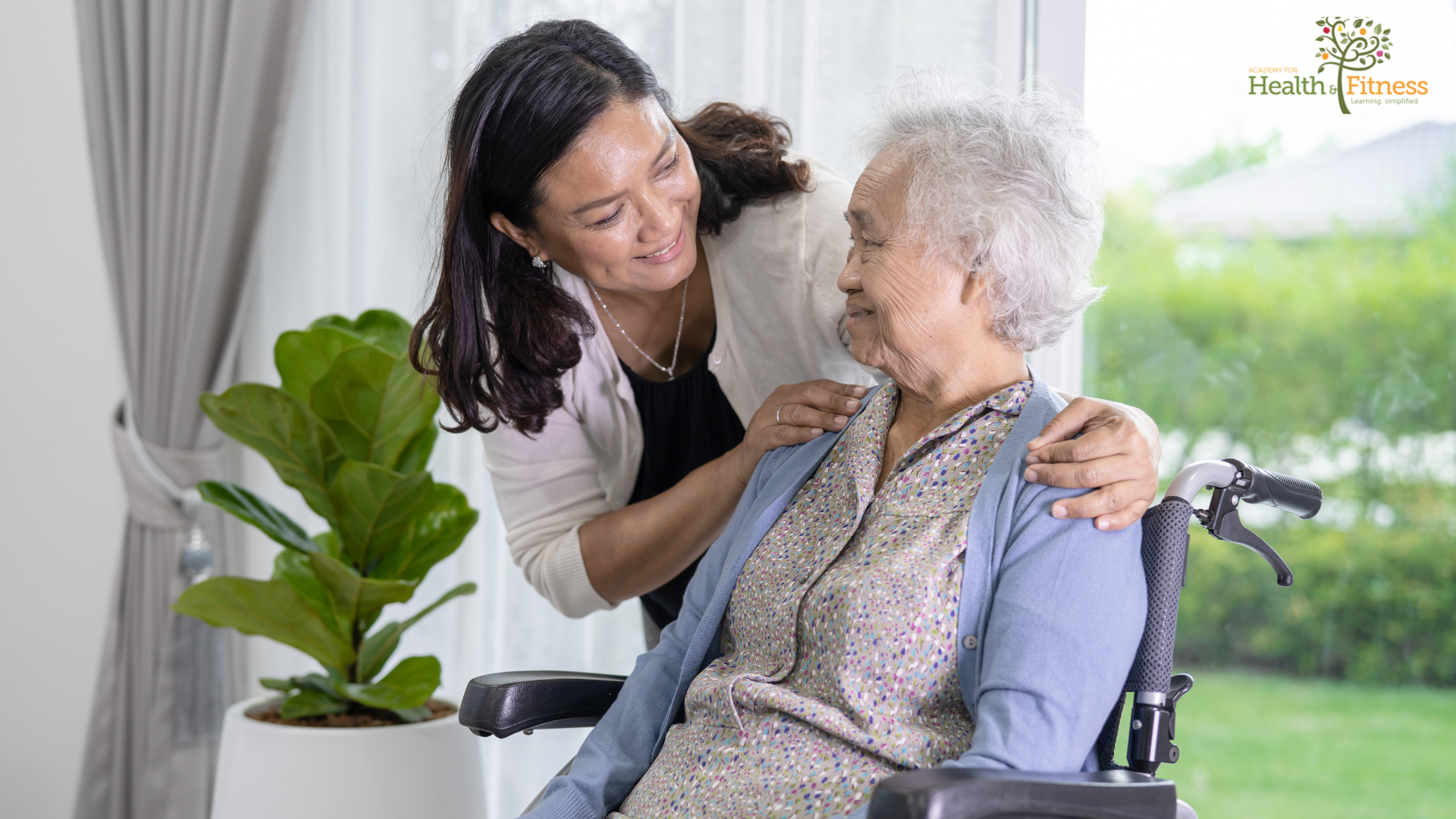
About to start your career as a nursing assistant in elderly care? It must be confusing what responsibilities you have to take on in this new role. But don’t worry, you can build confidence and succeed from day one by knowing what to expect.
Well, in the CNA role, your primary focus will be meeting the patient’s basic needs. For instance, you have to help them with eating, bathing, toileting, or mobility. However, you can expect some other duties like taking vital signs, monitoring health changes, and so on.
Moreover, there are some limitations in your role in elderly care. So, what are the core responsibilities, and what are the limitations? Let’s get to know comprehensively in today’s guide.
Importance of Nursing Assistants in Elderly Care
For the elderly who wish to age with the comfortable feeling of home, the CNAs can be the most crucial member of their care team.
They play a very important role in providing the elderly care required to ensure their health and well-being. It does not matter whether they need daily support, temporary medical attention, or dedicated to long-term illness, CNAs are the real assistance in their care.
CNAs’ roles are especially beneficial for seniors who are-
- Need assistance to recover after injury or illness
- Live with chronic health conditions. For instance, heart disease, diabetes mellitus or cancer
- Face challenges to leave home and take medical treatment.
Here, the CNAs bring expert assistance to senior care, which they can never manage alone.
Their hands-on care helps the elderly to live comfortably. Moreover, they can live with dignity as they age due to CNA’s assistance.
What is The Role of a Nursing Assistant in Elderly Care?
Actually, the primary role of the CNAs is to meet the basic needs of the patients. However, you can expect to have many other duties. It will depend on the condition of the patient and the requirements of the environment where you’re going to start work.
Still, let’s check out the core roles and responsibilities of the CNAs below.
1. Assistance With Basic Daily Tasks
The older the person gets, it becomes difficult for them even to complete their daily tasks.
That’s why when you take on the duty of the nursing assistant, your primary focus will be to help the patients in ADLs or activities of daily living.
A survey of the 2011 U.S. National Health shows that more than 20% of adults over 85 years old require assistance in ADLs.
Some of the examples of ADLs in which the nursing assistant offers support include-

2. Maintaining A Clean And Sanitized Environment
The nursing assistants have a very important role in ensuring and maintaining a very clean and sanitized environment for the patients. They keep the rooms of the patients and common areas clean and organized.
You, as the nursing assistant, may need to take on tasks like changing the bed linens or cleaning the surfaces. Moreover, you have to ensure to follow the infection control protocols to prevent the spread of any potential infections.
3. Communicating With The Healthcare Team And Family Members
Well, actually it does not matter whether you work in a healthcare facility or care home to help elderly patients. You will serve as the channel between the healthcare professionals and patients.
Your important role in this regard will ensure that the issues of the patients are well communicated. You will need to maintain communication even with the family members regarding the patient’s care in case you work in home care.
4. Take The Patient’s Vital Signs
Vital signs check-ups, it is the another role of the nursing assistants in elderly care. It will be your duty to measure or monitor
- Blood pressure
- Pulse rate
- Temperatures or
- Respiratory rate
You may need to do so on a timely basis and record them. Moreover, you will also report the physical health documentation to your supervisors to determine whether the patient needs any immediate attention.
5. Facilitating Patient Care
Patient health monitoring actually goes far beyond just measuring the vital signs. In the nursing assistant role, it is all about ensuring the well-being of elderly patients. You have to stay attentive to their health in your daily interactions.
You know, sometimes small changes can become a major concern, and that’s especially true for elderly patients.
But in the nursing assistant role, you will likely first find out about any change that others may miss out on. For instance, bruises, blood in the urine, or other injuries.
You will have to document the changes and report to healthcare professionals promptly. Thus, you can ensure timely care for the patients.
Moreover, the nursing assistants also help the elderly patients during the medical checkups and treatments. It ensures a supportive care environment.
6. Set Up Medical Equipment And Assist With Some.
In the CNA career, sometimes you will be responsible for helping the patient with different types of medical equipment prescribed for this health condition. You may prepare blood pressure cuffs, oxygen tanks, or aids for their mobility.
Moreover, you have to ensure the feeding tubes, catheters, or wound care supplies are properly placed and functioning.
With your dedicated and sincere care for the patients, the medical staff is able to focus on the more complex tasks. So, no wonder, how many great and respectable professions you will be engaged in, right?
7. Assistance In Medical Management
You know most of the states require nursing assistants to be certified who provide the senior home health care. That’s because certified nursing assistants generally take special training on how they can perform medical tasks properly.
These types of training are especially useful for caring for elderly patients. This training helps the CNAs to perform their tasks with confidence and make them prepared to handle those common health tasks.
Here, your role will be to support the medical team. Though you won’t be the direct caregiver, your role is crucial to maintaining the health and comfort of the patient and assisting the healthcare professionals.
8. Answer Calls For Help.
Elderly patients often need assistance quickly. Sometimes it can be due to their aggregating pain or require help for moving. After you take on the responsibilities of the CNAs, you will be the first one to answer these calls.
Your quick response can make the elderly patients feel safe and more comfortable. It will show them that they can truly rely on you!
9. Providing Mobility Support
Many elderly patients require assistance for their mobility. It can be due to their illness, or injury or it can be age-related limitations. Here, the nursing assistant provides support to the elderly patients.
In the CNA role, you can expect to assist the patients in moving around and transferring them between the beds, chairs, or vice versa. All in all, you have to ensure that the elderly patients can move through in a safe environment.
10. Providing Emotional Support
Do you know what’s the most difficult thing for elderly patients? It’s that they just don’t deal with the physical pain! They often have to struggle with emotional challenges.
Elderly patients can be lonely, anxious, and depressed due to their illness or due to their age. And here, your daily interactions or active listening can make a great impact on their mood and also physical health.
You will provide companionship, listen to their concerns, and offer reassurance when they are going through hard times.
Limitations of Nursing Assistant’s Roles and Responsibility
As you see, your role as a CNA is crucial in offering basic treatment to patients. However, there are tasks that are not part of your CNA responsibilities. Let’s check out those below.
1. Administer medication
It will be fine for you as CNAs to remind the elderly patients that it’s time to take medicine and help them with which medication to take.
However, you can’t directly administer the medication to the patients.
2. Making diagnoses or treatment decisions
It is not appropriate for CNAs to make diagnoses or make treatment decisions for their patients. You won’t need to provide medical services like physical therapy.
Moreover, you should not perform tasks that require special training and supervision. For instance, administering injections or providing other medical treatments.
3. Provide transportation
You can accompany your patients to medical appointments or run errands. But you should not be the one to provide transportation without proper authorization and insurance coverage.
4. Manage mail
The CNAs can bring the mail of their clients to their homes. However, they should not open, read, or manage it. You know operating others’ emails is against the law and can bring jeopardy to your healthcare career.
5. Manage finances
The CNAs should not handle the financial matters of their clients and also not any personal matters. It can lead to concerns about the possibility of mistreatment or abuse.
Skills To Have As A Nursing Assistant

Now, let’s take a quick look at what skills you should have as a CNA to take care of elderly patients.
i) Empathy
In the CNA career, you will help the patients in their daily activities and meet their personal needs.
You will have to work closely to monitor their health. So, it is essential to build trust and a safe relationship with them to ensure better care.
ii) Communication skills
You will be part of the care team as a CNA. Moreover, you will be responsible for reporting the condition of the patient to the healthcare professionals. So, here clear communication skills will be a must.
iii) Knowledge of medical terminology
You should understand the medical terminology to work alongside with the medical professionals.
It will help you to communicate effectively with them about the patient’s condition and treatment.
iv) Knowledge of drug administration
When you are new in your career, you will be given medication under supervision.
But as you gain experience and training, you may need to do it on your own. So, you should remember what you have learned to keep the patient safe.
FAQs
Here, get to know more about the role of the CNAs by the questions that the people mostly ask.
What is the difference between a CNA and a geriatric nurse assistant?
A geriatric nurse assistant and a CNA perform almost the same responsibility. However, the only difference is the amount of study they have to complete. The GNAs must pass the state examination. But you just need to complete the state-approved CNA program and get certification to become a CNA.
What is the most important thing for a nursing assistant?
As for the CNAs, communication skills, compassion, and empathy are most important. Additionally, they also need to have skills like attention to detail, teamwork, and problem-solving skills.
What are three tasks that nursing assistants do not usually perform?
The CNAs are not responsible for inserting or removing the tubes or giving the tube feeding. Moreover, changing the sterile dressing is also not included in their duty. Their main role is to assist the patients in basic care.
Final Words
As you see, you have to take on many roles and responsibilities as a CNA for the elderly. Moreover, there are also some limitations in the CNA certification. Still working as a nursing assistant is a great way to gain experience in nursing.
Your starting career in a CNA role will allow you to test the water without any burdensome debt. Actually, it is a perfect way to achieve confidence in your abilities and make a true difference in the lives of the elderly patients they are likely to be waiting for!